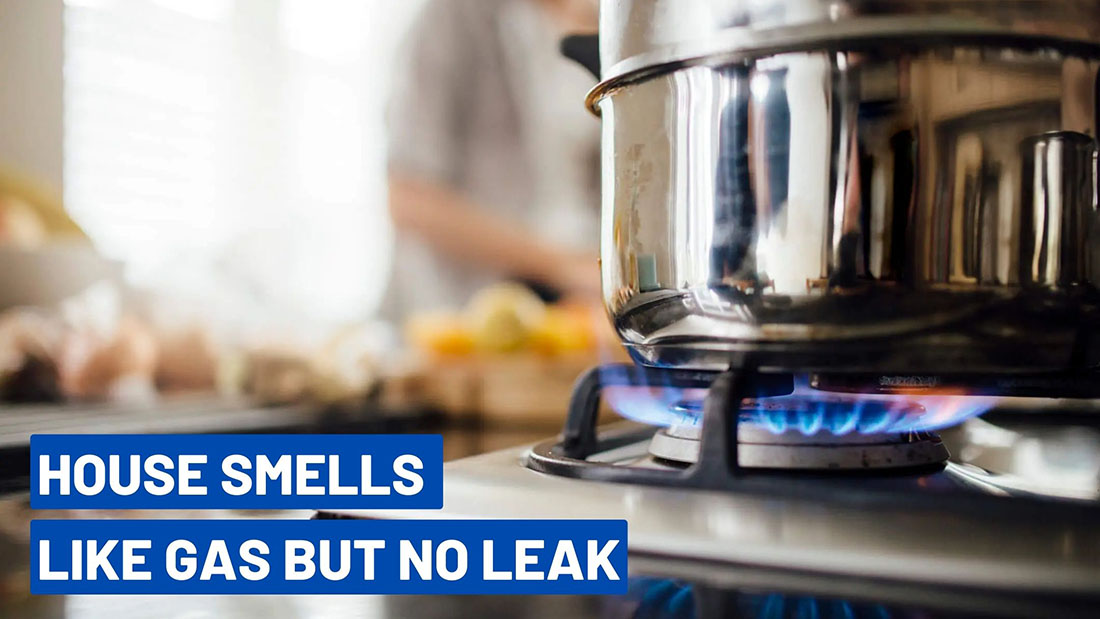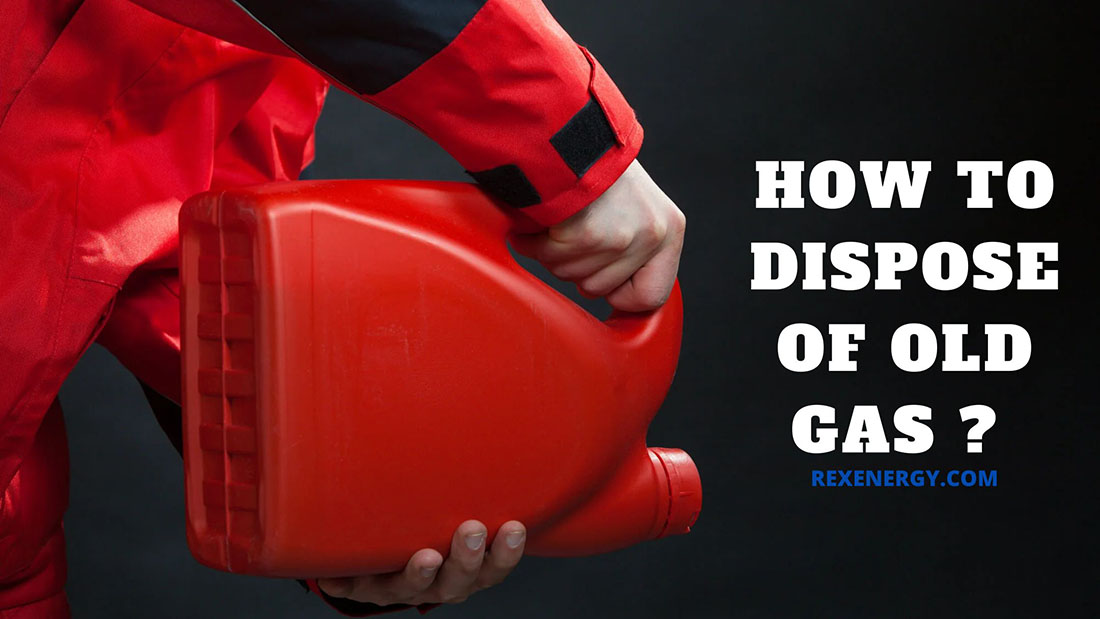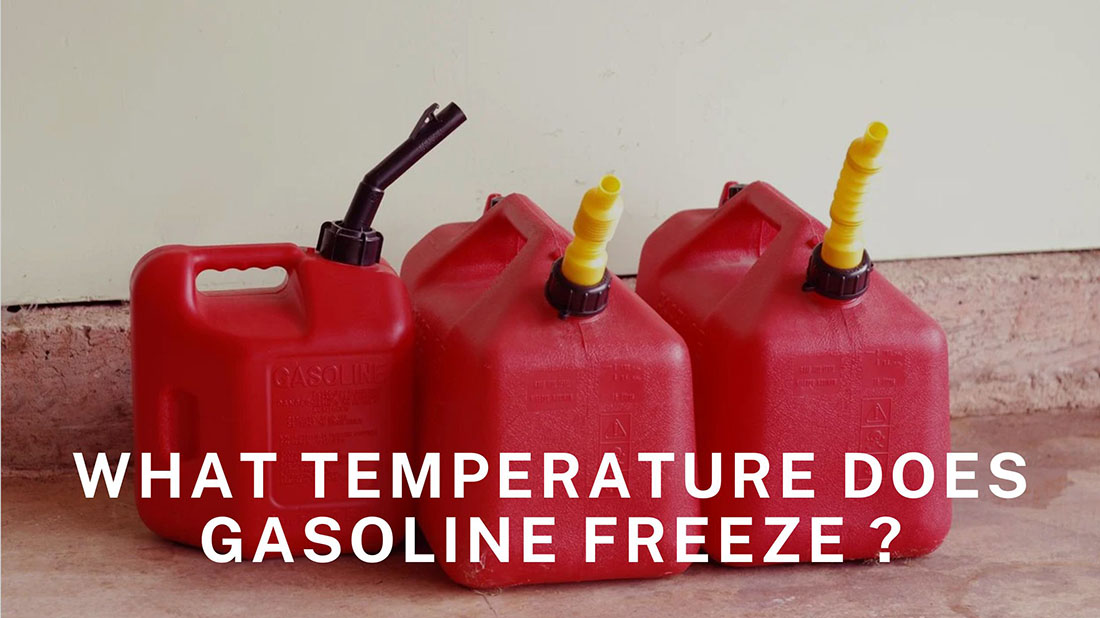The presence of propane odor in the house sparks concern and anxiety for homeowners. When you notice this smell, it is natural to assume that a gas leak is the culprit. However, what if your house smells like gas but has no sign of a leak? Join us as we unravel the reasons behind this abnormal situation.
11 Common Reasons Why House Smell Like Gas
If there is a gas smell but no leaks, it could be the lingering propane odor due to poor ventilation or it coming from your neighbor. The dirty sewage system, contaminated well, or rotten garbage (like veggies, dead animals, residual foods, etc.) might also be the source of the smell.
Leak From Neighbour
Gas leaks may not always be within your house but could potentially stem from neighboring homes. Improper installation of natural gas service in certain houses paves the way for leaks. For instance, when the riser tube is damaged, it fails to prevent gas leaks from the main pipe to the atmosphere. Consequently, it can release gas into the surrounding environment, including your living area.
Don’t forget to inform your neighbor of the gas odor so they can check their gas lines. That said, numerous other possibilities could contribute to such situations, making it difficult to pinpoint the exact cause. It is advisable to contact your gas company and request a thorough inspection.
Poor Ventilation
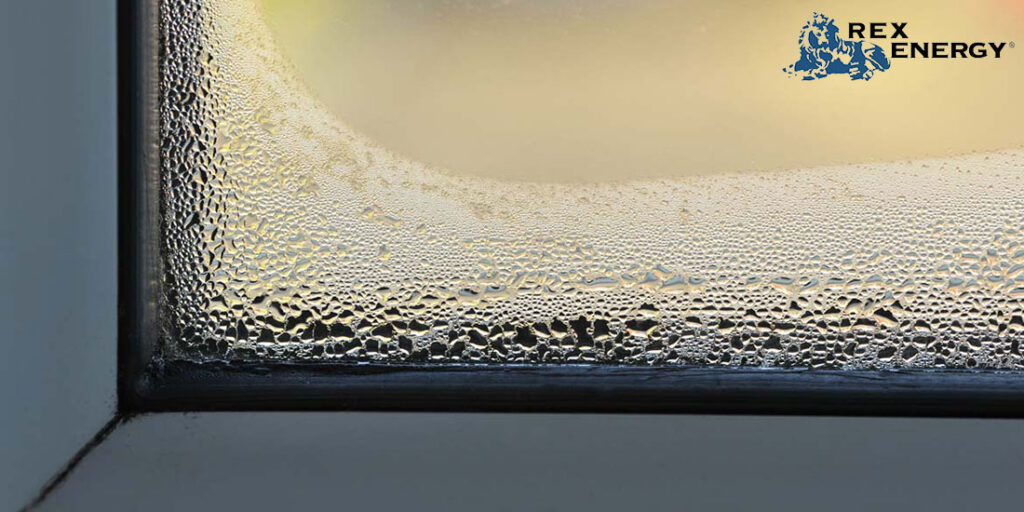
There are various reasons why foul odors find their way into your home, but they tend to persist due to inadequate ventilation. While using room sprays and opening windows can provide temporary relief, investing in a dependable air purifier or ventilation fan is more effective. These devices improve the air quality and circulation within your home.
Dirty Sewage System
Methane gas stemming from sinks, showers, or bathtubs due to decomposition of organic matter, lack of oxygen, or clogged pipes can be mistaken for natural gas odor. Neglected plumbing systems may also emit odors when the U-shaped fixture, known as a “trap,” lacks sufficient water to prevent the backflow of exhaust gasses.
Sewage gas poses serious health and safety risks, including suffocation, poisoning, and fire hazards in significant concentrations. Fortunately, resolving this problem is relatively straightforward if you can identify the root cause. By allowing water to run down the drain for a few seconds, clean water will flow through and activate the “trap,” mitigating the odor issue.
Bacteria In Water System
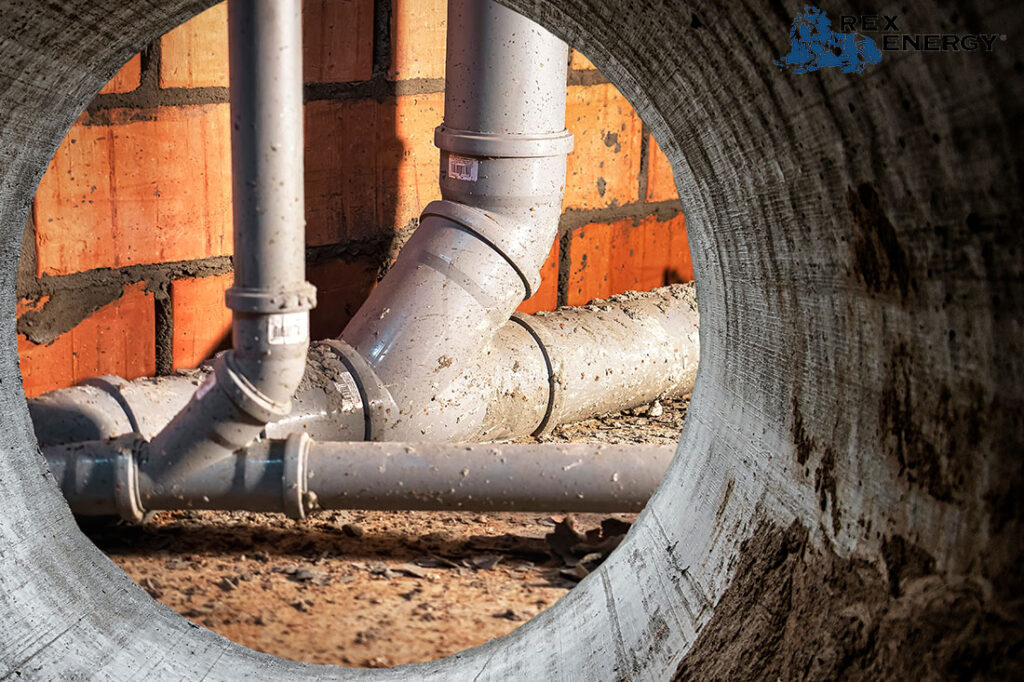
If you experience the smell of gas only when you switch your heater to the hot-water function, it’s likely the growth of bacteria inside that releases sulfur compounds. This issue tends to be more prevalent during summer when elevated water temperatures create a conducive, humid environment. A similar problem may occur with fireplaces, resulting in unpleasant odors during winter.
Bathrooms that are infrequently used or have low thermostat settings are prone to this problem. Additionally, the chemical reaction between the water and the anode rod in the filter tank can contribute to the transfer of odors into the water.
While the smelly water from these heaters does not compromise your health, long-term exposure will do. You can disinfect the water by adding chlorine bleach or increase the temperature to 160-180 degrees Fahrenheit for several hours to eliminate bacteria. Another solution is to replace the aluminum or magnesium anode rod with an alloy one.
Contaminated Well
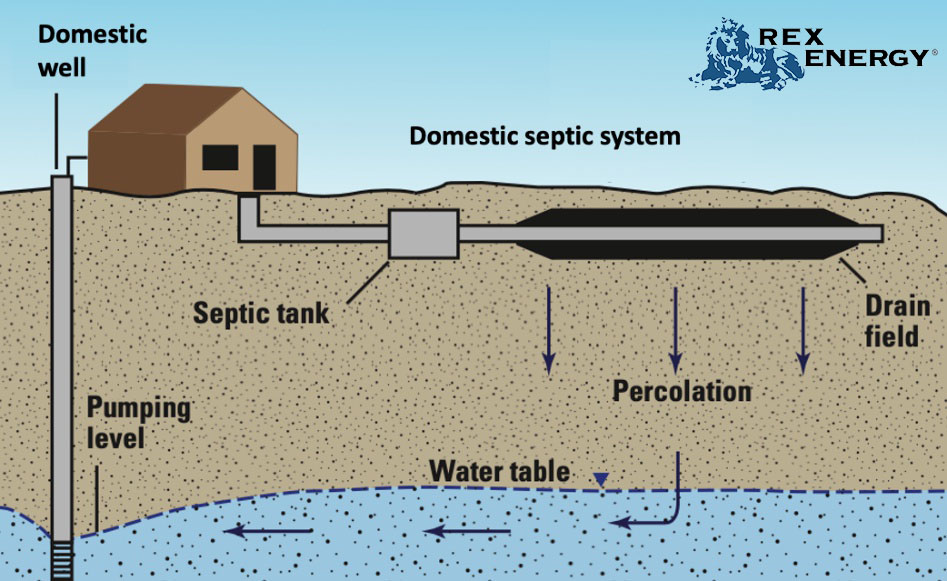
In rural areas where people rely on wells as their primary source of water for everyday use, the issue of the sulfur smell due to bacteria growth can be more common. Contaminated water may harbor pathogens, which can cause diseases under favorable conditions.
Addressing this problem requires a thorough cleaning process by a certified technician due to its complexity. The procedure typically involves several steps: inspection, disinfection, and rinsing. Additionally, certain providers offer laboratory testing of water samples before and after the cleaning service to ensure the effectiveness of the treatment.
Blocked Trash Chute
If you live in an apartment building and notice a gas smell in the house, someone might unconsciously throw some rancid trash, such as rotten eggs. Furthermore, the gas odors can come from clogged trash chutes due to overload. The decomposition process often releases sulfur gas, which pollutes the atmosphere.
A visual inspection can give you a rough idea about the severity of the problem, such as the extent of the odor and the source of the smell. However, it is crucial to promptly contact the building manager or administration team to take appropriate actions and address any underlying issues.
Overripe Vegetables, Spoiled Foods, Or Dead Animals
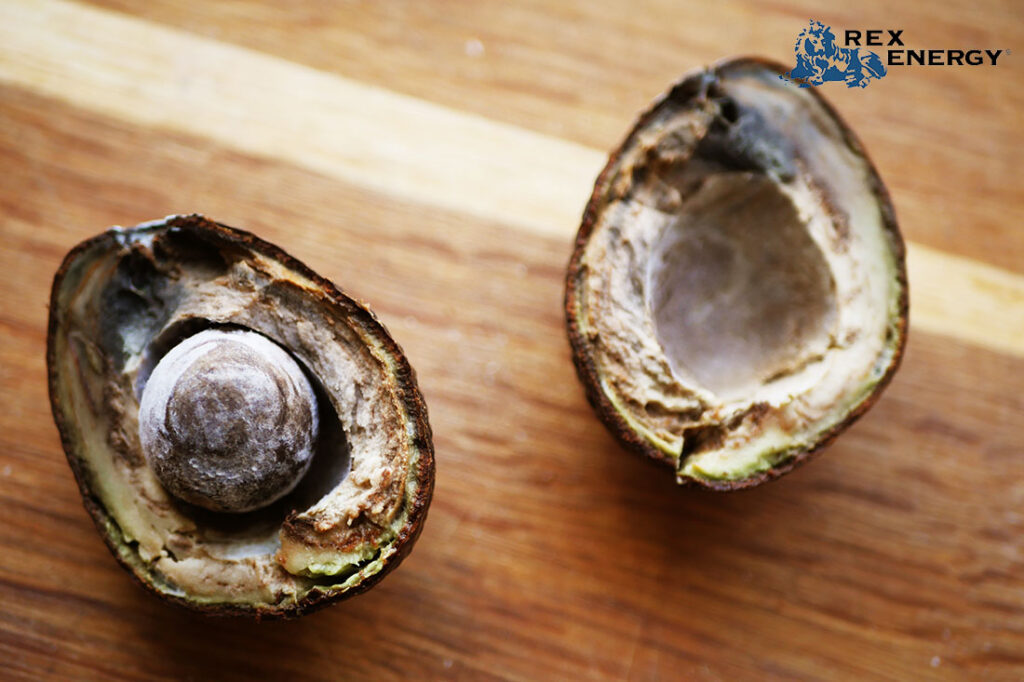
Not only rotten eggs but spoiled foods or overripe fruits can generate a strong stench even in a closed trash can. Similarly, decaying dead animals somewhere around your living area also give off that gas-like smell.
In such cases, cleaning your house regularly, adhering to local garbage disposal guidelines, and following your region’s designated trash collection schedules are advisable. Ensure you dispose of perishables promptly and properly, such as by sealing them in appropriate bags or containers.
Drywall Issues
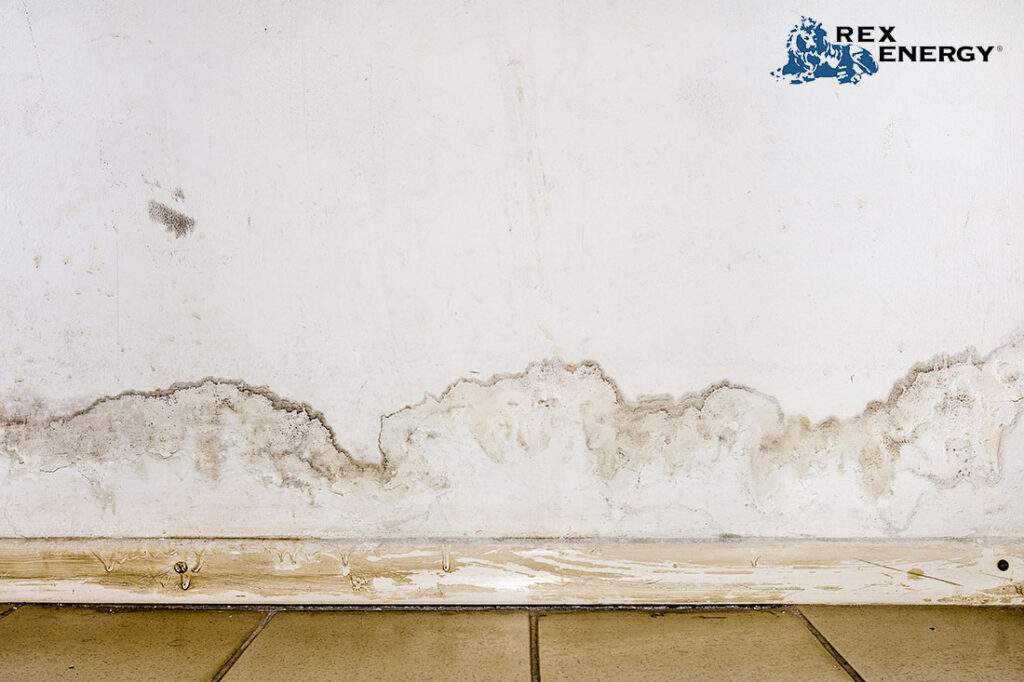
When did you install your drywall? If the installation date falls between 2001 and 2009, it is worth investigating its origin. During this period, there were reports of certain products imported from China that had been found to contain high levels of sulfur compounds. These low-quality drywalls were associated with various problems, including releasing unpleasant odors into living spaces over time.
One potential indicator is the presence of unusual dark spots on nearby copper parts, as the released sulfur compounds will react with copper and cause corrosion. Contact your insurance agent if you observe signs or suspect drywall issues. They can guide you on how to address the problem and offer support for remediation efforts, depending on your insurance coverage.
Bleach Or Burn Plastic
Strong-smelling cleaning products, such as bleach, can sometimes create odors reminiscent of gas. Look around your home for any bleach stains that may have caused the gas-like odors.
Another possibility is that a plastic object has burned. For instance, the insulation on an electrical wire might have melted due to overload, or your neighbor may be burning trash in plastic bags. These situations can release odors that may be mistaken for gas.
Lingering Odors
Once you have ruled out the above reasons, it may be natural gas released by gas appliances during usage, repairs, or maintenance that still lingers in the air.
If you are concerned about the presence of natural gas, contact your local authorities or gas supply companies to conduct appropriate checks or investigations for the exact cause.
What To Do If House Smells Like Gas
Dos
- Be vigilant and identify the source of the odor
- Open all windows and turn on the ventilation system in your house
- Turn off the gas supply valve on your gas line
- Turn off all electrical equipment
- Report the leak and call a professional
Don’ts
- Do not create flames or electrical sparks
- Do not use anything that can make an electrical charge, such as light switches, rotary telephones, doorbells, etc.
- Do not leave cleaning agents, gasoline, oil, or flammable liquids near gas-burning appliances.
- Do not return to the leak area until you are informed it is safe.
- Do not repair a gas leak yourself by digging around the gas line.
How Do I Get Rid Of The Rotten Odors In My House?
If the lingering gas smell bothers you, you can try some of these solutions to eliminate the odor.
Little did you know cat litter can absorb odors effectively; that’s why I use it to get rid of the propane odor in my house, especially for dead animals. I usually pour a large amount of cat litter at the smelly spot of the animal remains and leave it there overnight. Coffee grounds also seem fine if this product is not readily available in your house.
Otherwise, you can mix vinegar, water, and baking soda in a 1:1:1 ratio in a bowl and use a spray bottle to spray this solution around the house, paying attention to the strongly smelly area. Placing fresh citrus peels around your house also helps a lot. These succulent fruits contain natural essential oils to neutralize foul odors.
What If There Is A Leak?
When you smell gas in the air, inspecting the gas appliances first is instinctive. Keep your eyes on stoves, dryers, and similar devices, ensuring no details are overlooked until you can confirm the safety of your household.
The leak may not only originate from the source itself but also occur within the pipelines. It might be that the connection pin between the stove and your gas tank has come loose and silently released gas. It is also important to exercise caution when using electronic devices.
Once a problem is identified, promptly adhere to safety precautions. Subsequently, you can consider hiring a professional technician to address the gas leak.
FAQs
What Does A Propane Leak Smell Like?
Propane is odorless by nature, but ethyl mercaptan – an odorant – is added for safety purposes. This gas is often described as rotten eggs, sulfur, or a strong, pungent odor.
How Long Does The Gas Smell Last In The House?
The gas-like smell should dissipate within a few hours or less after you treat the source of the odor and the area is well-ventilated. If you open the window and the leak is minor, it sometimes takes a few minutes.
Can A Carbon Monoxide Detector Detect Gas?
Unfortunately, NO. Carbon monoxide detectors are designed to detect the presence of carbon monoxide gas. On the other hand, gas leaks refer to the escape of natural gas or propane, primarily composed of methane.
Conclusion
When you notice a slight gas smell in the house, stay calm and approach the issue with caution while ensuring safety. If you have ruled out all possible causes but cannot identify the source, contact a professional who can conduct a comprehensive inspection using specialized equipment to detect hidden leaks or underlying issues. Remember, regular gas line maintenance is key for a safe environment.

